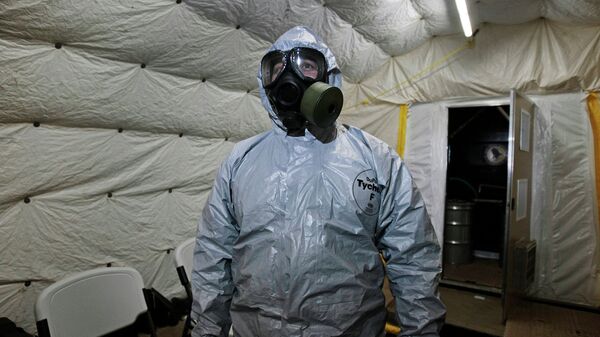“The OPCW has verified the destruction of 87 percent of the world’s declared chemical weapons to date,” Uzumcu stated. “Within the next eight years we expect that all those weapons stocks will be destroyed.”
Uzumcu said that six countries are not members of the OPCW, but Myanmar is likely to become the 191th member soon.
“We continue to work with Egypt and Israel. There is no justification for these countries to remain outside the commission [OPCW], since chemical weapons are now taboo and not a strategic option for any country. Obviously, North Korea remains a concern.”
The Director General underlined the success of the OPCW-UN Joint Mission established in October 2013 on eliminating Syria’s chemical weapons.
“Within less than a year we were able to report that all declared chemical weapons slated for destruction abroad were removed from Syrian territory, 98 percent of these weapons have now been destroyed.”
Uzumcu emphasized that much of the work was done in dangerous conditions within extremely tight deadlines.
“What I especially welcome about the Syrian chemical disarrangement mission was that the United Stated and the Russian Federation played a key role by leading the international community to act in unison on the issue of chemical weapons.”
Following a breakthrough deal, brokered by Russian Foreign Minister Sergei Lavrov and US Secretary of State John Kerry in September 2013, Syria agreed to place its chemical weapons under international control for further elimination.
The OPCW Fact-Finding Mission findings suggest that chlorine was used as a weapon in three villages in northern Syria between April and August 2014.
The Organization for the Prohibition of Chemical Weapons in an inter-governmental organization whose members represent about 98 percent of the global population and landmass, as well as 98 percent of the worldwide chemical industry, according to the OPCW’s website.



